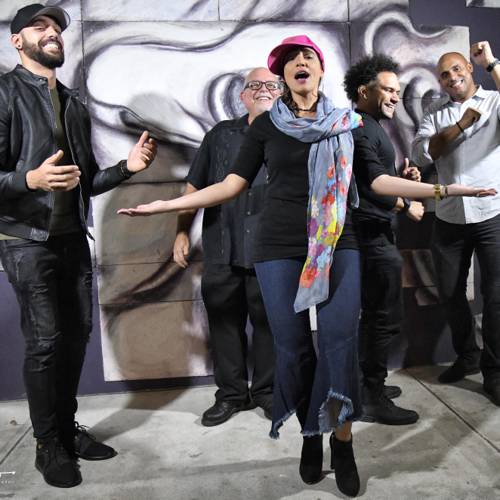
FAQ About The Role of Afro-Latin Music in Cultural Fusion

What is Afro-Latin music?
Afro-Latin music is a genre that combines elements of African and Latin American musical traditions. This fusion incorporates African rhythms, percussion instruments, and vocal styles with Latin melodies and harmonies, resulting in distinctive and vibrant musical styles such as salsa, samba, and mambo.

How did Afro-Latin music originate?
Afro-Latin music originated during the colonial period when African slaves were brought to Latin America. The fusion of African rhythms with Spanish, Portuguese, and indigenous musical influences led to the creation of new musical styles that evolved over time, reflecting a mixture of different cultural heritages.

What are some examples of Afro-Latin music genres?
Notable examples of Afro-Latin music genres include salsa, rumba, merengue, son, mambo, samba, bolero, and cumbia. Each of these genres features unique rhythmic patterns and instruments that showcase the blend of African and Latin traditions.

How has Afro-Latin music influenced global music styles?
Afro-Latin music has significantly influenced global music by introducing rhythmic complexity and diverse instrumentation to mainstream music. Its elements can be found in jazz, hip hop, and pop music, leading to cross-cultural collaborations and innovative musical creations worldwide.

What role does dance play in Afro-Latin music?
Dance is integral to Afro-Latin music. Each music genre often corresponds to a specific dance style that encapsulates the rhythm and energy of the music. For example, salsa, samba, and rumba are not just music genres but also popular dance styles that are celebrated for their lively and expressive movements.

Why is drumming important in Afro-Latin music?
Drumming is crucial in Afro-Latin music because it carries the African cultural aspect of rhythm and beat. Drums like the congas, bongos, and timbales are foundational, providing the rhythmic structure and driving energy that define the music's unique sound.

Who are some influential artists in the Afro-Latin music genre?
Influential artists include Celia Cruz, Tito Puente, Johnny Pacheco, and Gilberto Gil, among others. These performers have made significant contributions to the genre, popularizing Afro-Latin music worldwide and continuing to inspire new generations of musicians.

What cultural impacts have resulted from Afro-Latin music?
Afro-Latin music has played a pivotal role in cultural fusion, fostering greater understanding and collaboration among diverse cultures. It has helped to preserve African heritage in Latin American societies, promote cultural identity, and serve as a form of artistic expression that transcends cultural barriers.

How do modern artists incorporate Afro-Latin music elements?
Modern artists incorporate Afro-Latin music by blending its percussion, rhythms, and melodies with contemporary genres like hip hop, electronic, and pop. This approach not only popularizes traditional sounds but also leads to the evolution of new music styles and artistic collaborations.

What instruments are typically used in Afro-Latin music?
Typical instruments in Afro-Latin music include various types of drums like congas and bongos, as well as other percussion instruments such as claves and maracas. Melodic instruments include the guitar, piano, and brass sections like trumpets and trombones, which are used to enhance the rhythmic foundation.

In what regions is Afro-Latin music particularly popular?
Afro-Latin music is particularly popular in regions with significant African and Latin influences, such as the Caribbean islands (Cuba, Puerto Rico), Brazil, and parts of Central and South America. Its appeal has also extended globally to North America and Europe, where it enjoys a broad audience.

How has Afro-Latin music affected other art forms?
Afro-Latin music has significantly influenced other art forms such as dance, visual arts, and theater. It has inspired various artistic expressions that incorporate its themes, rhythms, and cultural heritage, contributing to a richer global artistic landscape.

What is the role of festivals in promoting Afro-Latin music?
Festivals play a crucial role in promoting Afro-Latin music by celebrating its artistic diversity and cultural significance. Events like the Havana Jazz Festival or the Carnaval de Barranquilla highlight Afro-Latin music and dance, drawing large audiences and providing a platform for artists to showcase their talents.

How does Afro-Latin music contribute to cultural identity?
Afro-Latin music is a vital component of cultural identity for communities with African and Latin American roots. It preserves both ancestry and historical narratives while allowing for a shared expression of cultural pride and unity across different ethnic groups.

Can Afro-Latin music be found in mainstream pop culture?
Yes, Afro-Latin music has increasingly entered mainstream pop culture. Elements like its rhythms and percussion are frequently used in popular tracks by artists such as Shakira, Ricky Martin, and Marc Anthony, who blend these elements with pop music to create hits with broad appeal.

What educational initiatives exist for learning about Afro-Latin music?
Educational initiatives on Afro-Latin music include music programs in schools and universities, workshops, and online courses dedicated to exploring its history, instruments, and cultural impact. These programs aim to deepen understanding and appreciation of the genre’s diverse influences.

How has technology influenced Afro-Latin music?
Technology has greatly influenced Afro-Latin music by enabling new forms of music creation and distribution. Digital audio workstations (DAWs) allow artists to blend traditional sounds with electronic music, reaching global audiences through streaming platforms and social media.

What are some common themes in Afro-Latin music lyrics?
Common themes in Afro-Latin music lyrics include love, social justice, celebration, and cultural pride. These topics reflect both personal and communal experiences, often highlighting social issues and solidarities within Afro-Latin communities.

How do Afro-Latin dance styles differ from traditional Latin dances?
Afro-Latin dance styles often incorporate more African-influenced movements and rhythms compared to traditional Latin dances. They emphasize hip movements, poly rhythms, and improvisation, offering a dynamic and expressive form of dance compared to more structured Latin styles.

What challenges does Afro-Latin music face today?
Challenges facing Afro-Latin music today include cultural appropriation, commercialization, and the need to preserve its traditional roots amid modern influences. Artists and scholars strive to maintain authenticity and respect for its cultural heritage while adapting to contemporary music trends.
